In the remote reaches of Siberia, a colossal scar on the Earth’s surface is expanding at a breathtaking pace, swallowing up the frozen landscape and potentially unleashing ancient threats. The Batagaika crater, aptly nicknamed the “Gateway to Hell,” is not just a geological curiosity – it’s a stark reminder of the rapid changes our planet is undergoing.
GET SECURITY ALERTS, EXPERT TIPS – SIGN UP FOR KURT’S NEWSLETTER – THE CYBERGUY REPORT HERE
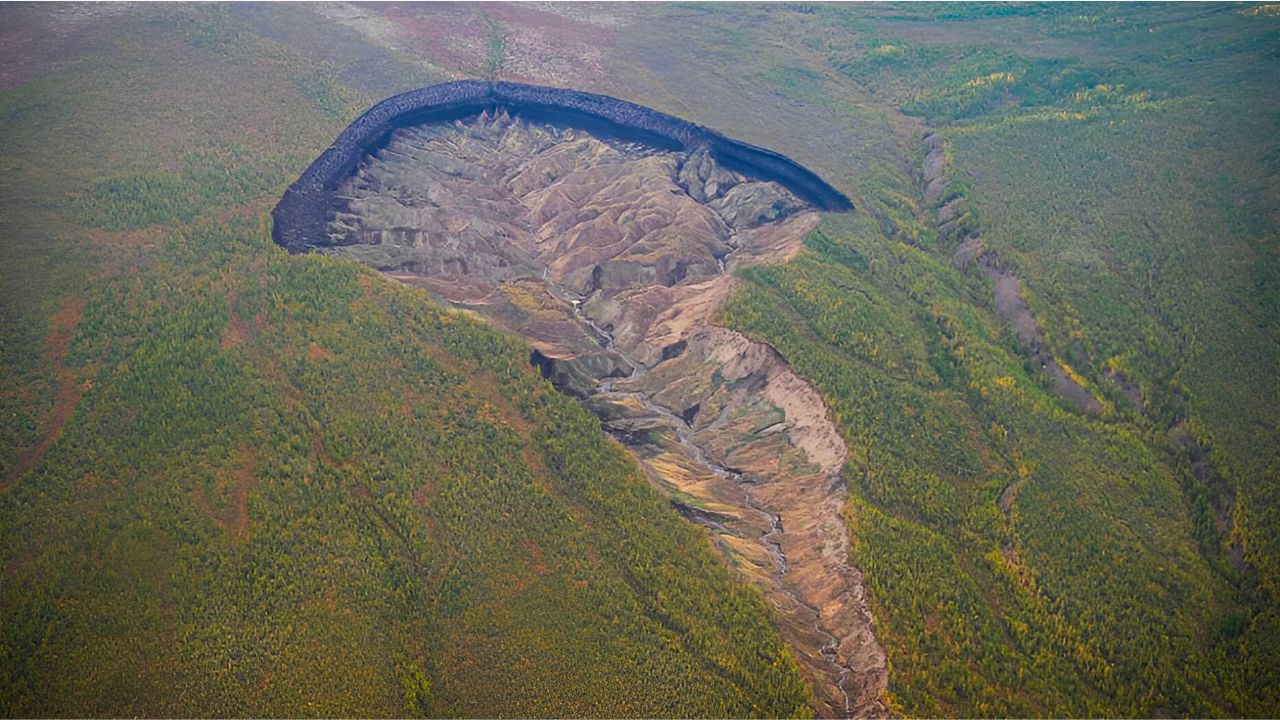
Credit: Murton et al/Permafrost Periglacial Processes
A monstrous sinkhole in the permafrost
Imagine a gash in the Earth so large you could fit several football stadiums inside it. That’s the Batagaika crater for you. This massive thermokarst depression – a fancy term for a giant permafrost-thaw sinkhole – is growing at an astonishing rate of 35 million cubic feet each year. To put that into perspective, it’s like carving out a small town’s worth of earth annually. Currently stretching about 0.6 miles long and 0.5 miles wide at its widest point, this behemoth shows no signs of slowing down. In fact, it’s speeding up, driven by a vicious cycle of warming temperatures and melting ice. This study was published in the journal Geomorphology.
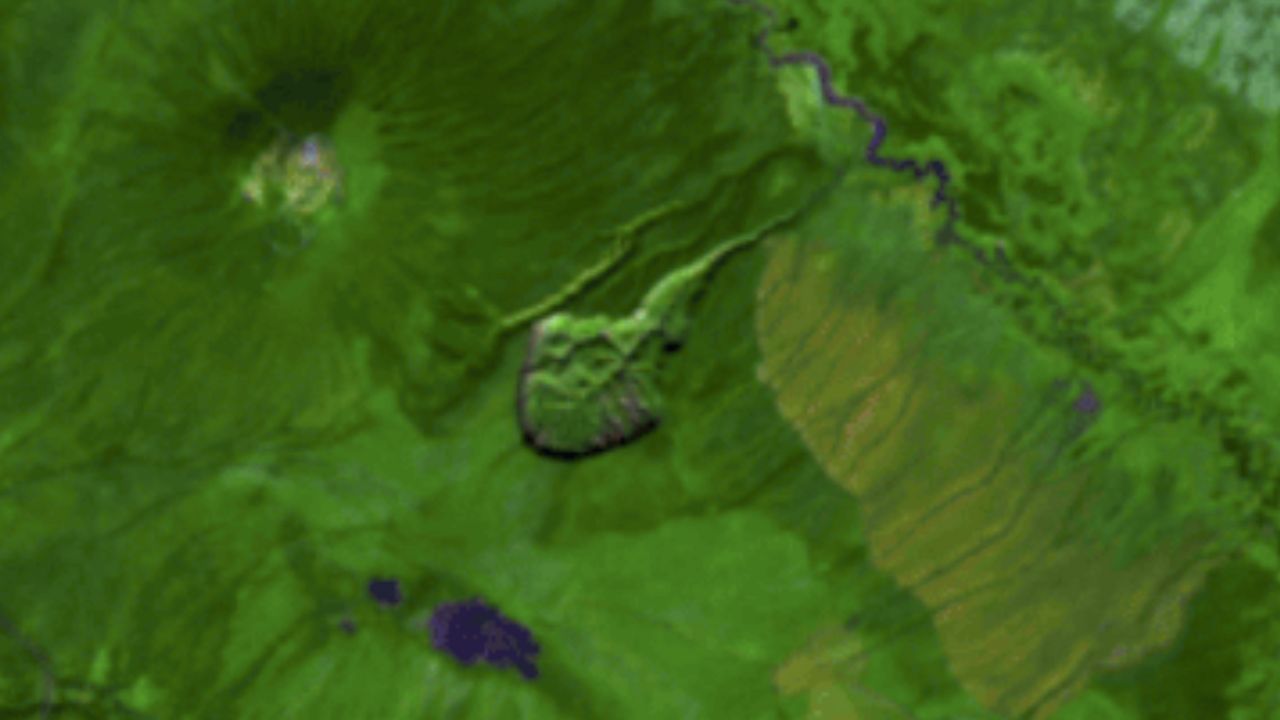
Credit: Earth Resources Observation and Science (EROS) Center
IS THIS SPACE CAPSULE HOW WE WILL LIVE AND WORK IN ORBIT IN THE FUTURE?
The permafrost paradox
Despite its name, permafrost isn’t actually permanent. It’s ground that’s remained at or below freezing for at least two years. When this frozen soil thaws, it can’t support the weight above it, leading to collapse and the formation of these massive “slumps.” The Batagaika crater is a prime example of this process in overdrive. As the permafrost melts, it exposes more soil to sunlight, which then melts more permafrost. It’s a feedback loop that’s difficult to break, especially in our warming world.
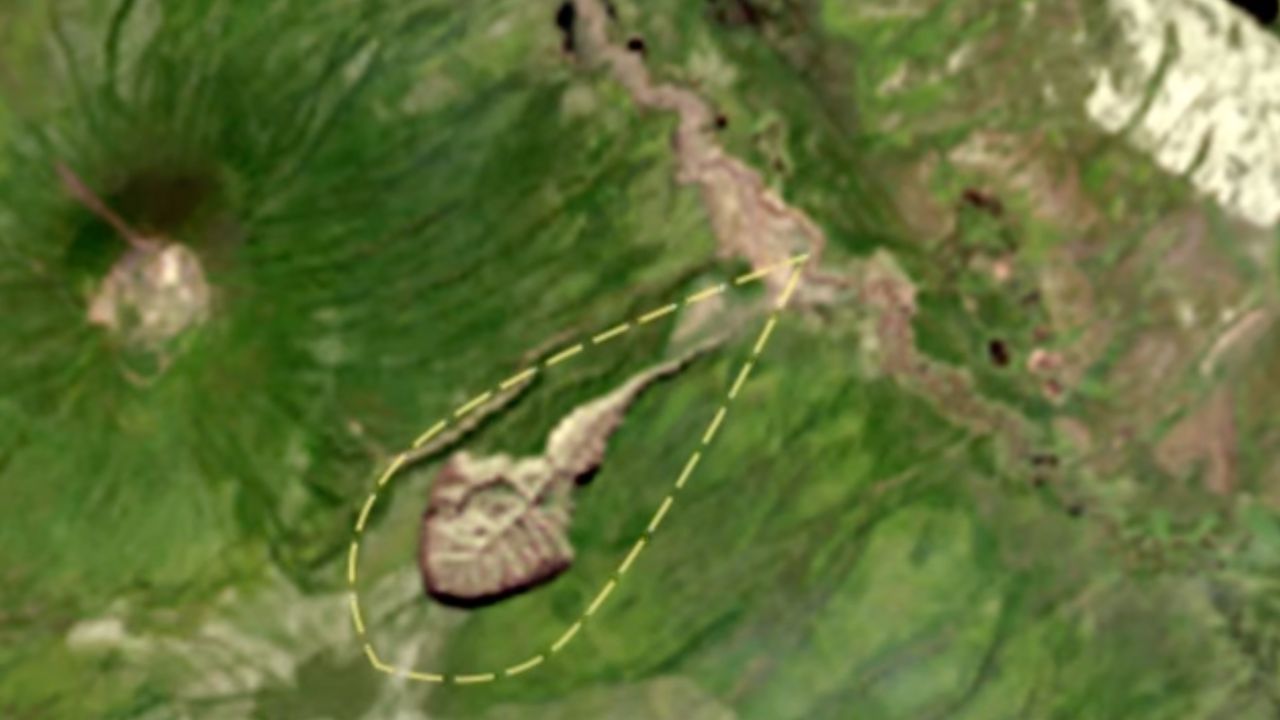
Credit: USGS
THE RACE TO FLOAT TOURISTS TO THE EDGE OF SPACE IS HEATING UP
Unlocking ancient secrets… and dangers
While the sheer size of the Batagaika crater is impressive, what’s truly mind-boggling is its depth – both physical and temporal. The steep walls of this mega-slump reveal permafrost layers estimated to be 650,000 years old. That’s older than our species. But with ancient ice comes ancient dangers. Scientists have already revived a 48,500-year-old ‘zombie virus’ from Arctic permafrost, and there’s concern about what other long-dormant pathogens might be awakening. It’s not just a plot from some sci-fi movie anymore – it’s a real consideration for modern science and medicine.
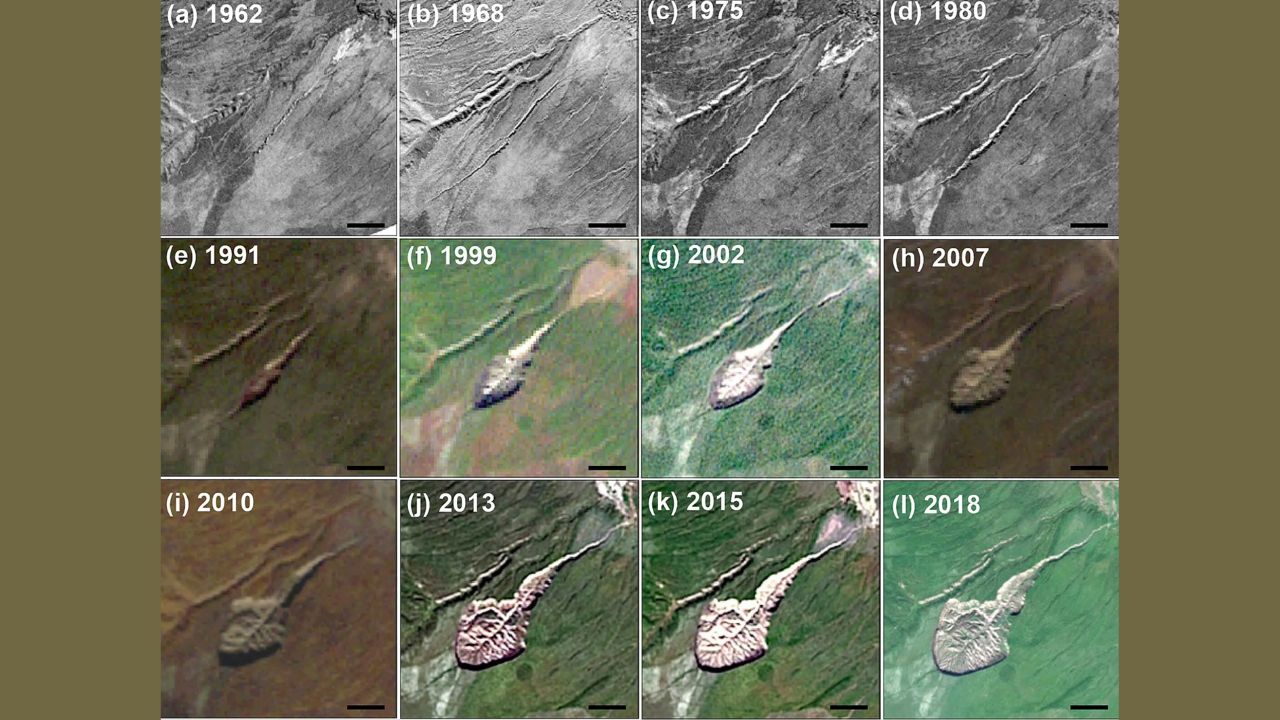
Credit: Murton et al/Permafrost Periglacial Processes
CALIFORNIA’S FIRST ELECTRIC TRAIN COULD BE WHAT’S COMING TO YOUR CITY
A carbon time bomb
The Batagaika crater isn’t just releasing potential pathogens – it’s also unleashing a significant amount of carbon into the atmosphere. According to recent studies, this single mega-slump is responsible for releasing 4,000 to 5,000 tons of organic carbon every year. That’s equivalent to the annual emissions of about 1,000 cars. This release of carbon, previously locked away in the frozen ground, further contributes to global warming, potentially accelerating the very process that created the crater in the first place.
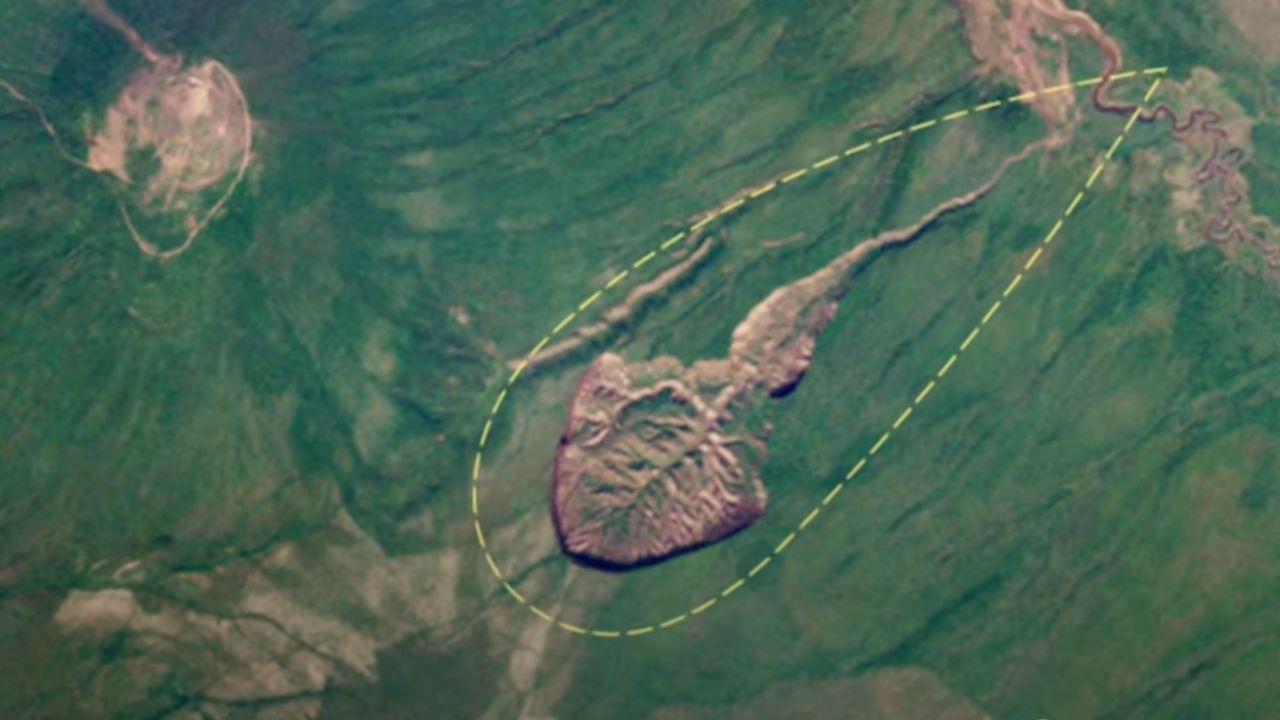
Credit: USGS
Kurt’s key takeaways
The Batagaika crater, while extreme, is not unique. It represents a process happening across the Arctic and sub-Arctic regions. As our planet continues to warm, more of these massive permafrost thaw features are likely to appear. While some might see the crater as a tourist attraction – and indeed, it has become one – it’s crucial to recognize it as a warning sign. The “Gateway to Hell” is more than just a catchy nickname; it’s a portal into a possible future where rapid environmental changes reshape our world in ways we’re only beginning to understand. The question remains: will we heed the warning signs and take action, or will we continue to watch as more gateways open across our warming world?
What are your thoughts on the potential impacts of ancient pathogens being released from melting permafrost, and how do you think we should address the challenges posed by climate change? Let us know in the comments below.
TO GET MORE OF MY SECURITY ALERTS, SUBSCRIBE TO MY FREE CYBERGUY REPORT NEWSLETTER



5 comments
This article would have been a lot better without the panic mongering of the ‘climate change’ hoaxism. Our planet has been changing ever since it was formed over 4 billion years ago. The oxygen we breathe was actually a toxic substance when it first appeared. As the core continues to cool and shift, things are happening that we have no ability to prevent or change. I refuse to panic over inevitable events.
Thank you for this. The climate panic is absurd. Cheers
Agreed. And, how arrogant of us humans to assert that our “footprint” can have a significant impact on the natural evolution of this Earth. There are powers at work here that we cannot comprehend.
Earth has been changing since the beginning of time and nothing man can do will stop it or change it. Climate change is just another world-wide hoax for powerful people to have more power & money, period. The real problem is digging out old viruses & bringing them back to life. What usually happens then is, Oh whoops! It gets leaked. I have nothing against the rich & powerful in general, it’s just the ones who are only out for themselves with no consideration for the common people of the world.
The mention of the dangers of carbon emissions related to the melting of permafrost. Is entirely necessary. Our planet has undergone countless changes over the last 4 billion years however, the pace increased since the beginning of the Industrial Revolution in the 1870s. What are the chances of that being coincidental?